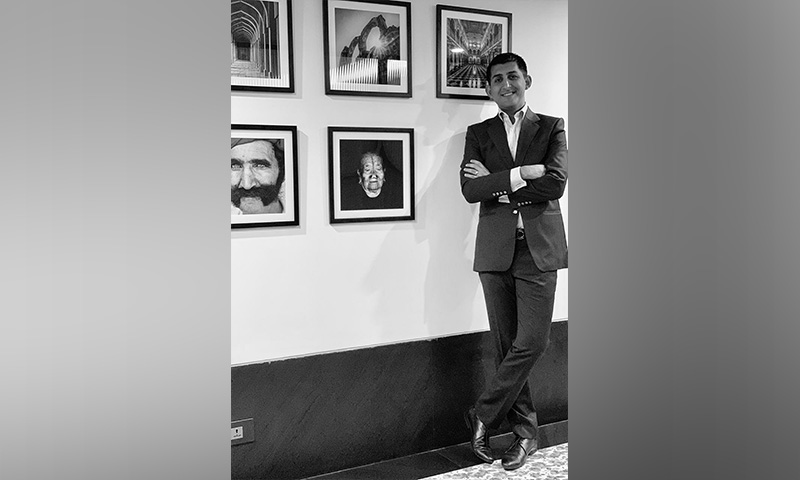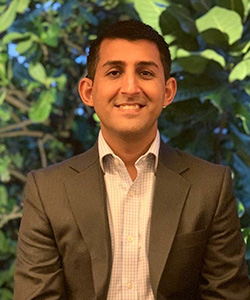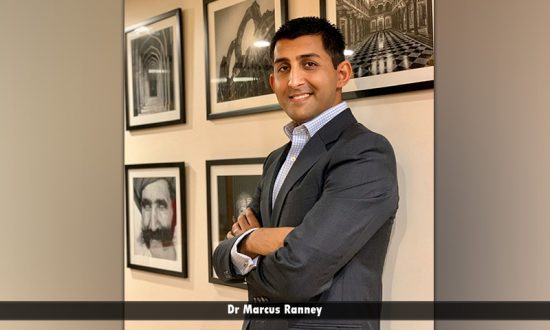Dr Marcus Ranney’s journey has led him from disease care, at the patient’s bed-side, to wellbeing, in some of the most extreme environments around the planet. Graduating from University College of London Medical School (UCL), his research has taken him to Mt. Everest, the Arctic Circle and the Alps. He has worked with fighter pilots whilst in the Royal Airforce and with astronauts whilst at NASA.
Dr Ranney’s latest non-fiction popular science book “At The Human Edge” unravels the amazing adaptive physiological responses that our bodies undergo as we push ourselves to the physical limits in human performance. From Mt. Everest to the South Pole, from a journey to Mars to the bottom of the Mariana trench, from running Marathons to surviving in the Sahara, this highly informative, gripping and accessible book lays out the complex world of cellular biology against the backdrop of human history. In a conversation with CXO Outlook, Dr Ranney explains how he wishes to inspire young minds and why writing a book is like a marathon in many ways.
What inspired you to write the book, “At The Human Edge”?
It was my children. I dreamt how wonderful it would be, for them to fall in love with science (in the same way I have!), through the words of their father. As Dr Tedros Adhanom Ghebreyesus, Director-General of the World Health Organization, wrote in support of the book “Now more than ever, we need a new generation of young scientists who will continue to push back the boundaries of the unknown.” I hope I can do justice to this sentiment and inspire these young minds, the world over.
What was the most challenging part while writing a book?
Writing a book is like a marathon in many ways. It requires discipline (to write every day), hard work (to research your subject and bring the best you can for your reader), perseverance (to deal with the rejections and criticism and to keep going) and humility (to know your limits and listen to people give you their advice). But in the end, just like the jubilation of reaching the finish line, you can hold your head up and feel proud of the legacy you are creating, to freeze a few moments of your life, into something that may last for a long time to come.
What kind of research do you do, and how long do you spend researching before beginning a book?
I have been fortunate to have a career which has allowed me to zig and zag, wearing many different hats, but with a singular goal of improving our collective wellbeing. As a science geek at heart, I fell in love with an adventure through the words of a physiology textbook and my experiences have allowed me to pursue those biological adaptations, and study them, in some of the most amazing environments around the world.
From the month I spent on the slopes of Mt. Everest, to the many skiing and climbing trips in the European Alps, my own journey of long distance marathon running and up-close encounters of working with fighter pilots in the Royal Air Force and astronauts at NASA; the intent of this book was to therefore bring as many stories as I could, from my own endeavours, and the work of others, to the reader.
The pandemic and of course, the lockdown and remote working, created a global realisation of the competitive advantage that wellbeing provides and I now spend a lot of my time working with corporate leaders and organisations to promote a higher level of performance and engagement amongst their teams.

What was one of the most surprising things you learned during the writing process of At the Human Edge?
I started out to tell a story about the human body, chronicling the effects that various extreme environments have on our physical body. As I studied and documented, and started to delve into the words of great adventurers through history, something became very clear. Spoiler alert, for our readers, the real battle was happening in our minds! The human brain can be an incredible force in helping us achieve whatever we set out to do. It is because of this that I dedicated the very last chapter of the book to “Mind Over Matter” and explored the relationship between the body and brain and how we can utilise this to our advantage.
How has been the response from readers so far?
It’s been incredible, and I am so grateful to everyone for that! As an author, one puts one’s heart and mind into an idea, and it feels very gratifying to be rewarded with such a positive response. From global leaders like Dr Tedros, the Director General of the WHO, participating in the book and being so gracious in his support, to athletes like Jonty Rhodes and influencers like Shilpa Shetty, it feels like this book can create a movement. Encouraging us all to take a journey within, by marvelling at the world outside and work towards gaining our Human Edge.
What authors do you like to read? What book or books have had a strong influence on you or your writing?
I love reading, and my bedroom, study table and travel bags are full of them. A big fan of non-fiction and the great works that helped shape so much of our thinking about science and the world. Darwin’s “Origin of Species”, Plato’s “The Republic”, Hawking’s “Brief History of Time” are amongst my favourites. I also love reading more contemporary pieces that explore the wonders of the natural world and adventures of explorers in their pursuit towards reaching great heights. I am fortunate in that people now know how much I enjoy books that I receive as presents all the time; stocking up my reading list and keeping my evenings very busy indeed!
What does literary success look like to you?
Helping spread the message, this mission of mine, to people and inspire them to experience science and the human body with the same enthusiasm as I have. I am excited to explore bringing this content to people in different languages and formats in the years to come and perhaps one day a young mind will come up to me and say “Thank you, for I became a scientist thanks to reading your words in the book ‘At The Human Edge’”.
What is the change that you want to see in our society?
To create a world where my two children, Aeden and Eva, can grow up, which is happy and healthy. To see science become sexy again and for young minds to dream of solving some of the biggest problems and venturing out into worlds beyond our own.
More About Dr. Marcus Ranney

Leaving the world of clinical medicine in 2010, Dr Ranney’s work now looks at the role of wellbeing in society and how technology can be crafted as a force for good. A keynote speaker and global health commentator, he has been a World Economic Forum’s Global Shaper, and more recently, appointed as a Senior Fellow to the Atlantic Council.
Marcus is a keen athlete and long-distance marathon runner, also holding a Guinness Record for backwards running, and he most of all describes himself as a young hands-on father intent on making this world a better place for his two children.


